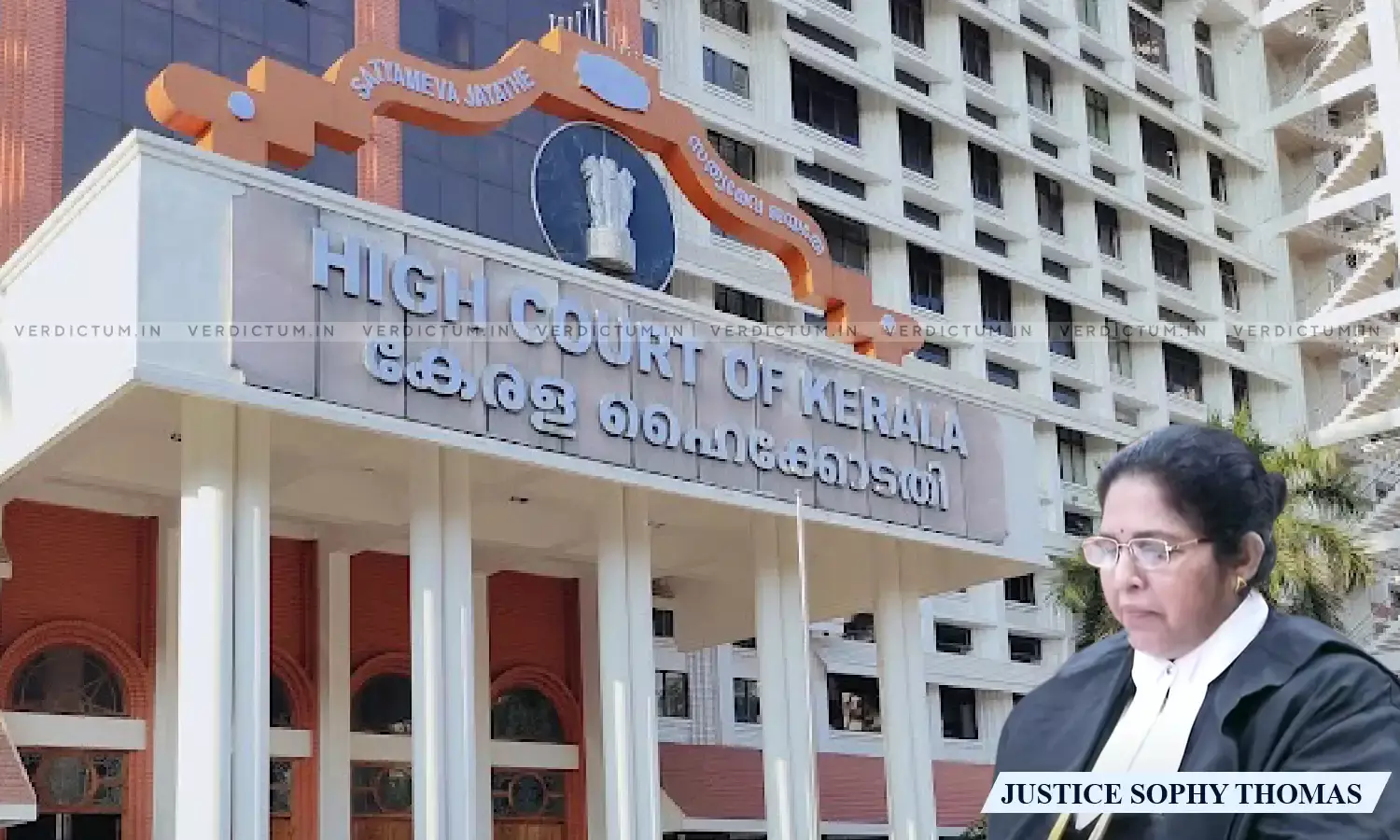Section 139 NI Act Presumption Will Be Attracted Even If Signed Blank Cheque Given By Accused Towards Some Payment Was Filled Up By Complainant: Kerala HC

The Kerala High Court observed that the presumption under Section 139 Negotiable Instruments Act will be attracted even if a blank cheque leaf is voluntarily signed and handed over by the accused, towards some payment, in the absence of any cogent evidence to show that the cheque was not issued in discharge of a debt.
Finding that the accused during his examination accepted on cheque bearing his signature which was dishonored for insufficiency of funds, and had failed to rebut the presumption under Section 139 of Negotiable Instruments Act, 1881, the Kerala High Court upheld his conviction under Section 138 of the N.I Act.
A Single Judge Bench of Justice Sophy Thomas observed that “The revision petitioner failed to adduce any cogent evidence to show that, the cheque given by him was not towards discharge of any legally enforceable debt. The contentions with regard to the vehicle loan, entrustment of blank cheque etc. are liable to be rejected, as no evidence is forthcoming to support the same. As he is admitting that, Ext.P1 cheque was signed by him and it was voluntarily given by him to the 1st respondent, not under any threat or coercion, the presumption under Section 139 of the N.I Act is very much available to the 1st respondent, and the revision petitioner failed to rebut that presumption”.
Advocate S. Rajeev appeared for the Petitioner, whereas Advocate R. Bindu Sasthamangalam appeared for the Respondent.
The brief facts of the case were that the revision petitioner borrowed Rs.4 lakh from him and issued a cheque towards discharge of that debt. When the first respondent presented that cheque before the drawee bank, it was dishonored due to insufficiency of funds. The petitioner also failed to repay the debt on receiving lawyer’s notice, and hence the respondent filed a private complaint under Section 138 of the N.I Act.
The Trial Court on analyzing the facts and evidence, found the revision petitioner guilty under Section 138 of the N.I Act, and sentenced him to undergo simple imprisonment for six months and to pay compensation of Rs.4 lakh with interest @ 9% per annum from the date of dishonor of the cheque till the date of payment.
After considering the submission, the Bench found that the revision petitioner had alleged that the cheque was issued not for discharge of any legally enforceable debt, and rather, it was contended that the petitioner availed a loan for his vehicle from the financial institution run by the first respondent, and some blank documents including a blank cheque signed by him, were given as security, and on closing that loan, those documents were returned, except the blank cheque, saying that, it was misplaced somewhere.
Subsequently, misusing that cheque, a false case was foisted by the first respondent, pleaded the petitioner.
Though noticing that the revision petitioner is alleging transaction with the financial institution of the first respondent in connection with a vehicle loan, the Bench found that no scrap of paper has been produced by him to show that the first respondent was running a financial institution, or to show that at any point of time, he had availed a vehicle loan from such an institution.
Even if cheque was given as a blank one, affixing his signature only, then also, the revision petitioner cannot disown the same, as he has no case that, he had given that cheque under any threat or coercion, added the Bench.
Accordingly, the High Court directed revision petitioner to surrender before the trial court to receive the sentence and to pay the fine amount. In default, the trial court has to issue arrest warrant against the revision petitioner for executing the sentence.
Cause Title: P.K. UTHUPPU v. N.J. VARGHESE and Anr. [Neutral Citation: 2023/KER/68691]
Click here to read/ download the Order

